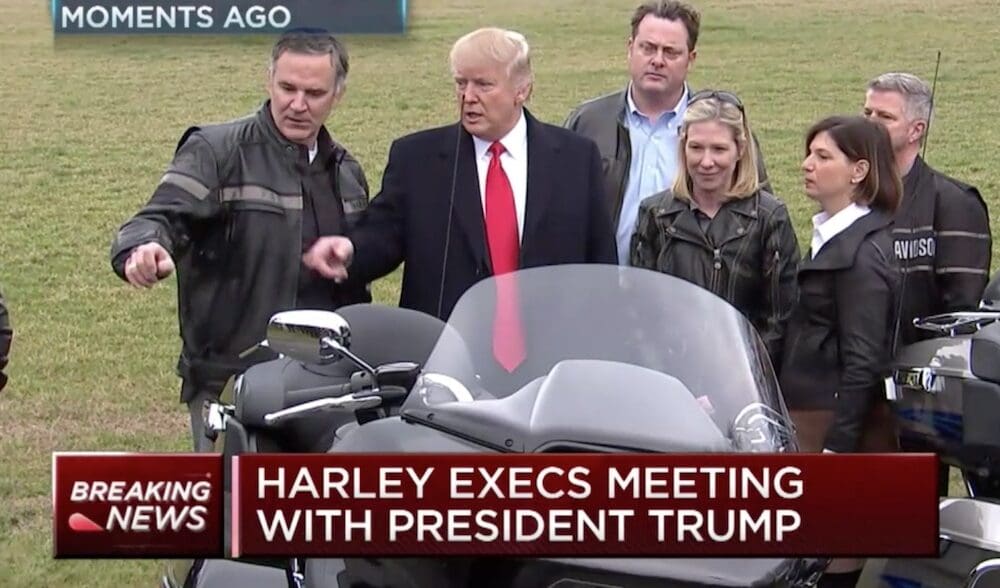President Trump has accused Harley-Davidson of “waiving the white flag” in his trade wars with Europe after the company announced it would move more production off shore to avoid high European tariffs.
Without saying where they would move production, the obvious choice would be their current Indian and Thai factories.
This could actually mean cheaper Harleys for countries such as Australia in the long term once Harley recovers from initial trade war costs of $100m a year.
Trade war irony
Ironically, Trump’s trade wars started with him mentioning how iconic American manufacturer Harley-Davidson was hit hard by 100% tariffs in India.
(His comments were wrong. Only some of their bikes imported as whole units attract a 50% tariff. Those assembled or built in India attract much lower tariffs.)
Trump escalated his trade war with a 25% tariff on imported steel and aluminium.
The European Union replied with 31% tariffs on US goods, which Harley estimated would lift prices of their bikes an average of $US2200 (about $A3000), €1800) each.
They initially announced price rises this northern Autumn, but now say they will move more production offshore to avoid the tariffs and absorb the tariffs until then at an estimated $100 million annual cost to the company.
Trump attacks Harley production move
Trump tweeted: “Surprised that Harley-Davidson, of all companies, would be the first to wave the White Flag, I fought hard for them and ultimately they will not pay tariffs selling into the EU, which has hurt us badly on trade, down $151 Billion. Taxes just a Harley excuse – be patient!”
Her continued the trolling Tweets saying a Harley should never be built in another country, saying the company’s offshore move is “the beginning of the end – they surrendered, they quit”.
While Trump’s trade wars were meant to help companies such as Harley, analysts now say it is backfiring and these companies are being hurt by tit-for-tat tariffs and the higher costs of steel and aluminium.
Harley’s share prices has fallen 5.9% as analysts such as Baird cut their estimates on the company’s profit forecast.
“We think Harley’s decision to protect EU demand is wise for the long-term health of the market,” Baird wrote.
“But we expect the near-term impact to weigh on estimates and sentiment until a clearer path to mitigation is outlined.”
Negative impact
The European 25% tariff would also hit other American auto manufacturers ash as GM and Ford, says analysts Moody’s.
“Both GM and Ford would need to absorb the cost of scaling back Mexican and Canadian production and shifting some back to the US,” says Moody’s senior vice president Bruce Clark. “They would also likely need to subsidise sales to offset the tariffs during the near term, and could eventually pass on the higher costs to consumers.”




